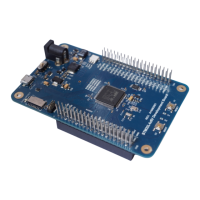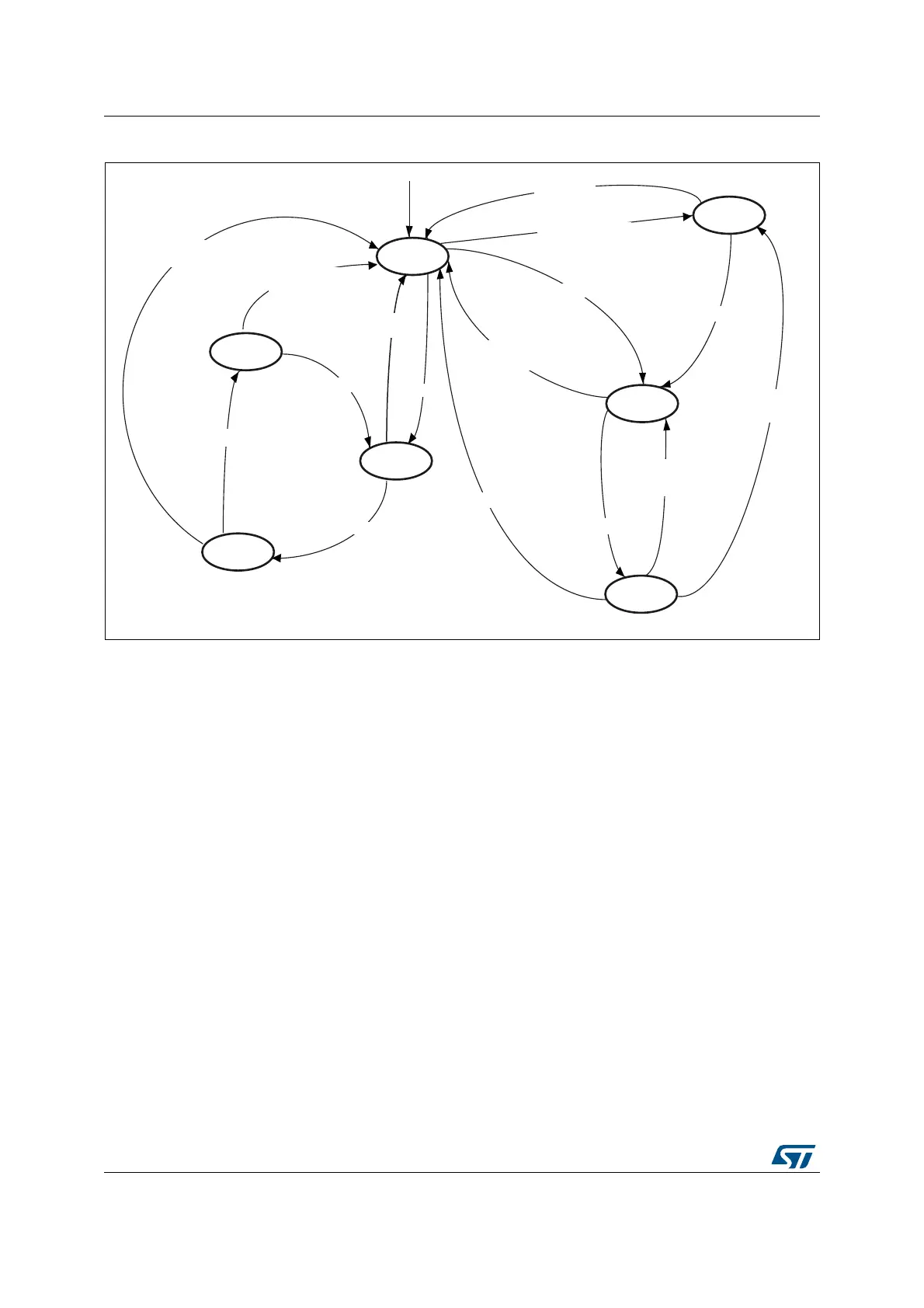SD/SDIO/MMC card host interface (SDMMC) RM0351
1404/1693 DocID024597 Rev 3
Figure 477. Data path state machine (DPSM)
• Idle: the data path is inactive, and the SDMMC_D[7:0] outputs are in Hi-Z. When the
data control register is written and the enable bit is set, the DPSM loads the data
counter with a new value and, depending on the data direction bit, moves to either the
Wait_S or the Wait_R state.
• Wait_R: if the data counter equals zero, the DPSM moves to the Idle state when the
receive FIFO is empty. If the data counter is not zero, the DPSM waits for a start bit on
SDMMC_D. The DPSM moves to the Receive state if it receives a start bit before a
timeout, and loads the data block counter. If it reaches a timeout before it detects a
start bit, it moves to the Idle state and sets the timeout status flag.
• Receive: serial data received from a card is packed in bytes and written to the data
FIFO. Depending on the transfer mode bit in the data control register, the data transfer
mode can be either block or stream:
– In block mode, when the data block counter reaches zero, the DPSM waits until it
receives the CRC code. If the received code matches the internally generated
CRC code, the DPSM moves to the Wait_R state. If not, the CRC fail status flag is
set and the DPSM moves to the Idle state.
– In stream mode, the DPSM receives data while the data counter is not zero. When
the counter is zero, the remaining data in the shift register is written to the data
FIFO, and the DPSM moves to the Wait_R state.
If a FIFO overrun error occurs, the DPSM sets the FIFO error flag and moves to the
Idle state:
• Wait_S: the DPSM moves to the Idle state if the data counter is zero. If not, it waits until
the data FIFO empty flag is deasserted, and moves to the Send state.
)DLE
"USY
3END
7AIT?2
2ECEIVE
%NDOFPACKET
$ISABLEDOR#2#FAIL
ORTIMEOUT
.OTBUSY
$ISABLEDOR
ENDOFDATA
$ATAREADY
%NDOFPACKETOR
ENDOFDATAOR
&)&/OVERRUN
%NABLEANDNOTSEND
$ISABLEDOR
2X&)&/EMPTYORTIMEOUTOR
STARTBITERROR
$ISABLEDOR&)&/UNDERRUNOR
ENDOFDATAOR#2#FAIL
AIB
7AIT?3
3TARTBIT
/NRESET
$ISABLEDOR#2#FAIL
%NABLEANDSEND
$03-DISABLED
2EAD7AIT
$03-ENABLEDAND
2EAD7AIT3TARTED
AND3$)/MODEENABLED
2EAD7AIT3TOP
$ATARECEIVEDAND
2EAD7AIT3TARTEDAND
3$)/MODEENABLED

